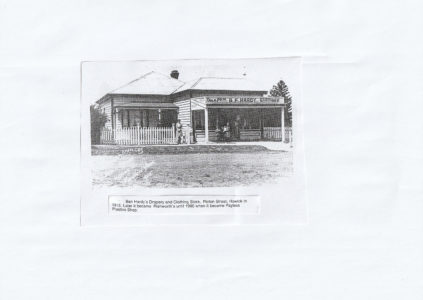Having served in the British Army for 20 years or more, the Fencibles of Howick, worn out, infirm and poor, collected their paltry pensions every three months.
For many, the Military pension was only six pence a day.
But in 1898 the Government, under Richard Seddon, after several attempts for approval in Parliament, wanted to provide for the deserving aged, the infirm and poor, with strict conditions. You had to have lived in New Zealand for at least 25 years, to be of good moral character, have had sober respectable lives, be over 65 years old and were means-tested. You must earn less than £34 [$68] a year and have assets of less than £50 [$100] and some even had to have a productive vegetable garden!
Pensions were particularly aimed at worn-out old soldiers, including Maori soldiers who deserved some recognition. But if you were found drunk, swearing, stealing or you had deserted your wife, your pension was immediately cancelled. Plain clothed policemen were instructed to inspect pensioners for compliance. If you were seen using your pension on liquor, your pension could be cancelled. The pension was only £18 [$36] a year which was less than one shilling a week.
All pensions were granted by a magistrate in the Old Age Pension Court. Some Howick residents complained that the Court had not sat in Howick for some time although it had sat at Panmure and Otahuhu. Howick old folk thought they might be missing out on their pensions.
Howick became part of Prime Minister William Massey’s electorate and most in this farming community considered him a friend.

One resident had a cow and sold a little butter and was penalised, only receiving a few pounds instead of the 18 pounds. In 1910 one Howick Pensioner finding his pension was not adequate, cut some firewood earning him 3 pounds that resulted in a reduction of one pound from his meagre pension.
After the 1880s, depression with better dairy and wool prices, the economy was improving and so were the Government’s bank accounts. Governments needed to be popular so Old Age Pensions were a carrot to catch extra votes without reducing the wages of public servants or stopping public works such as new roads.
When the new Howick Post Office opened in 1908, the Postmistress was proud of her varnished walls, desks and the highly polished linoleum floor in the public area. She did not like scruffy Old Age Pensioners coming into her clean Post Office. Her neighbour Frank Rishworth was a good friend of William Massey, our Prime Minister. When he heard that Pensioners could not get the Pension from the Post Office, he was happy to allow Rishworth to pay out the pensions and to sell them items from his shop for their homes. This arrangement lasted for many years. All shop owners were pleased to have extra business thanks to the Pensions being paid out to the deserving poor.
New Zealand was the first British country to reduce poverty in old age and provide a pension for the aged. Later miners, the blind, widows and family allowances were paid out.
Alan La Roche
Howick Historian







